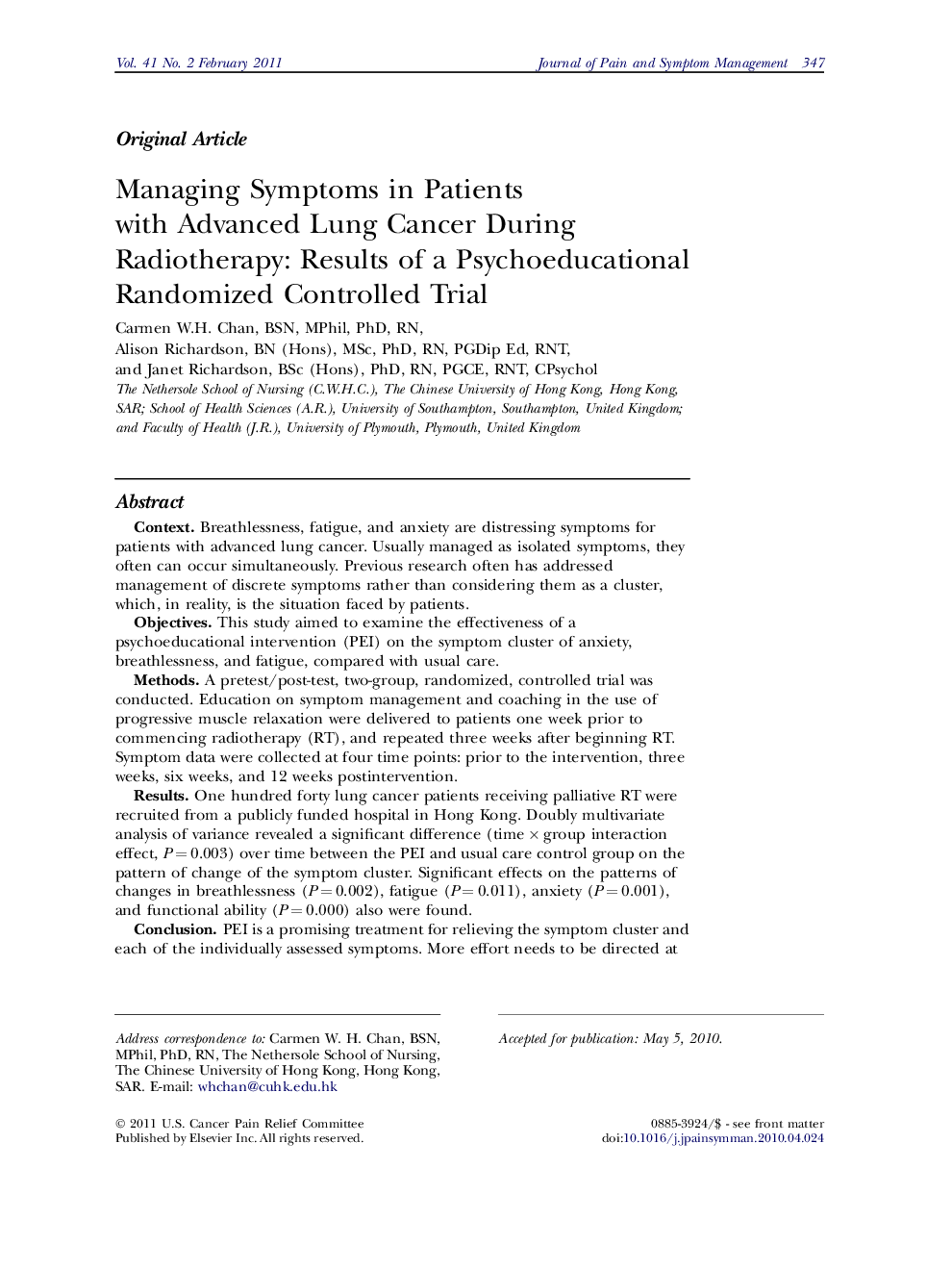| Article ID | Journal | Published Year | Pages | File Type |
|---|---|---|---|---|
| 2736167 | Journal of Pain and Symptom Management | 2011 | 11 Pages |
ContextBreathlessness, fatigue, and anxiety are distressing symptoms for patients with advanced lung cancer. Usually managed as isolated symptoms, they often can occur simultaneously. Previous research often has addressed management of discrete symptoms rather than considering them as a cluster, which, in reality, is the situation faced by patients.ObjectivesThis study aimed to examine the effectiveness of a psychoeducational intervention (PEI) on the symptom cluster of anxiety, breathlessness, and fatigue, compared with usual care.MethodsA pretest/post-test, two-group, randomized, controlled trial was conducted. Education on symptom management and coaching in the use of progressive muscle relaxation were delivered to patients one week prior to commencing radiotherapy (RT), and repeated three weeks after beginning RT. Symptom data were collected at four time points: prior to the intervention, three weeks, six weeks, and 12 weeks postintervention.ResultsOne hundred forty lung cancer patients receiving palliative RT were recruited from a publicly funded hospital in Hong Kong. Doubly multivariate analysis of variance revealed a significant difference (time × group interaction effect, P = 0.003) over time between the PEI and usual care control group on the pattern of change of the symptom cluster. Significant effects on the patterns of changes in breathlessness (P = 0.002), fatigue (P = 0.011), anxiety (P = 0.001), and functional ability (P = 0.000) also were found.ConclusionPEI is a promising treatment for relieving the symptom cluster and each of the individually assessed symptoms. More effort needs to be directed at studying impact of interventions on common symptom clusters.
